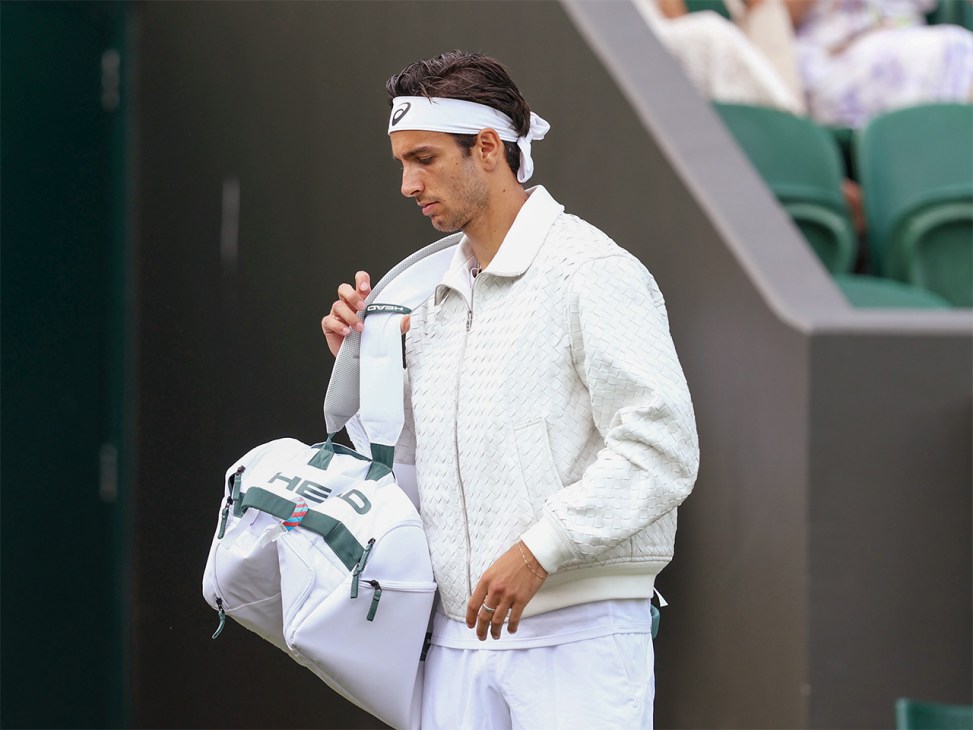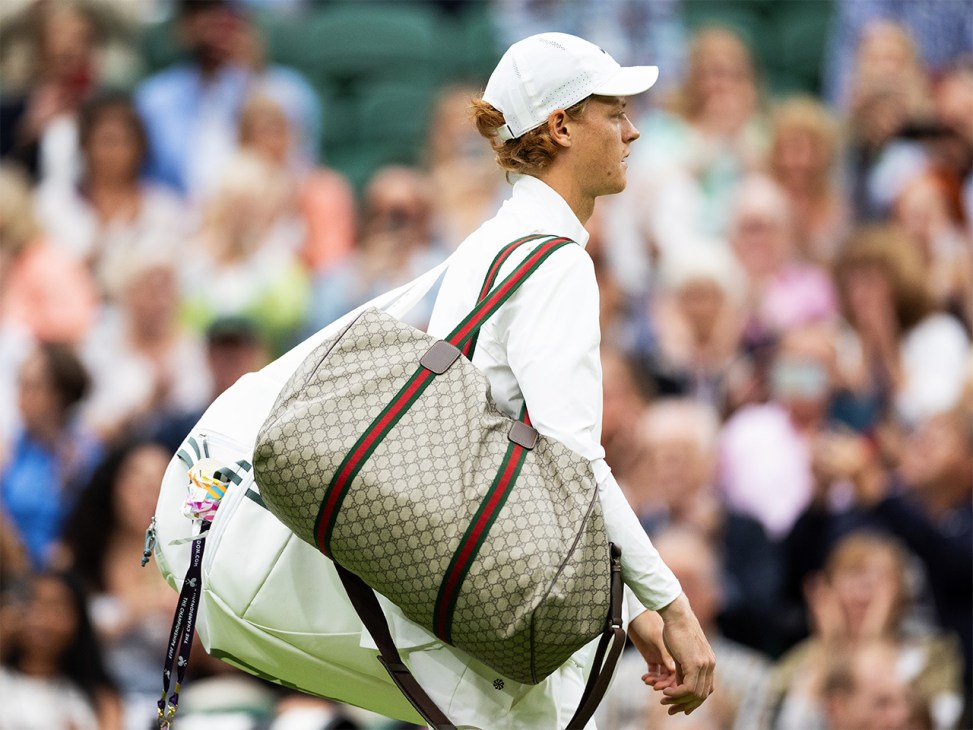Why athletes make the best brand ambassadors
Keen to portray a sense of technical expertise and the pursuit of excellence, luxury fashion houses are increasingly turning to sportspeople.
Could an athlete influence you to buy a leather handbag? Earlier this month, Bottega Veneta tapped Italian pro tennis player Lorenzo Musetti as its latest brand ambassador – a strategic marketing move announced on the day that he took to the court at Wimbledon. In London, he stepped onto the court in a white intrecciato leather bomber jacket for his first (and, sadly, last) game of the tournament. Aged just 23, Musetti joins Bottega Veneta’s prestigious stable of brand ambassadors, including South Korean singer I.N (of boy band Stray Kids) and Australian actor Jacob Elordi. Meanwhile, Wimbledon title winner Jannik Sinner’s walk-on moment featured an oversized Gucci bag. A global brand ambassador for the Italian house since 2022, his victory no doubt raised the spirits of the label’s marketing team as it gears up for a new chapter under Georgian designer Demna.

Fashion brands leveraging athletic prowess to associate themselves with technical excellence is nothing new. Basketball player Michael Jordan arguably pioneered the modern form of celebrity sponsorship when he signed his first deal with Nike in 1984. But the phenomenon has gained traction in recent years, replacing unapproachable Hollywood stars or online influencers with little more than follower counts on their lists of achievements. Who would you rather work with: a temperamental starlet or a punctual athlete? Carlos Alcaraz reps Louis Vuitton, alongside fellow tennis prodigy Naomi Osaka. In 2021, UK wunderkind Emma Raducanu clinched a US Open title along with a Dior ambassadorship, though the French house has since replaced her with Chinese player Qinwen Zheng after Raducanu failed to recreate the buzz surrounding her early-career wins. More recently, Italian brand Canali selected Greek tennis player Stefanos Tsitsipas to be its very first brand ambassador.
Paris’s Summer Olympics pushed the fashion industry’s interest in sports to fever pitch. French luxury conglomerate LVMH was a major sponsor of the games. The opening ceremony saw French athletes dressed in Berluti and performers, including Celine Dion and Lady Gaga, in Dior. LVMH-owned jewellery-and-watch house Chaumet crafted the medals, which athletes received in a bespoke Louis Vuitton trunk, évidemment.

In the contemporary marketing landscape, a pivot to sportspeople for inspiration and brand loyalty makes sense. Yes, models make for beautiful campaigns and we all harbour the hope that we might look like Vittoria Ceretti if only we wore the exact same Gucci dress. But being born gorgeous isn’t a form of merit that can compete with the discipline, dedication and exceptional skills of athletes. For many brands, sportspeople are a way to signal their own technical expertise and the pursuit of excellence.
A brand ambassador can also provide credibility. Swiss luxury-watch label Richard Mille works with French freediver Arnaud Jerald, who breaks records wearing an RM-032 and vouches for the watch’s ability to withstand watery depths in the process. French alpine skier Alexis Pinturault competes with an RM 67-02, putting the timepiece to the test as he whacks poles while slaloming down snowy slopes at breakneck speed. Whether or not office-working Richard Mille watch owners need this level of technical durability is another matter. It’s knowing that, if so desired, these technical marvels could sustain such strain.
Finally, with the fashion industry worth a reported €1.45trn and the sports world valued at €2.26trn, the maths behind this trend of cross-marketing is clear. Gaining visibility in an arena, stadium or on a court is simply a good investment. Sports fanatics are exactly that: fanatics. For many, the agony and the ecstasy of a game or match is akin to a religious experience, their favourite players saints or, in one case, a Sinner. For now, the luxury fashion houses have kept their sights on more elitist sports. But as marketing budgets shrink, brands might become more strategic with who they select to represent them. Whether or not these brand-ambassador deals will extend to the world of darts or video games remains to be seen.



